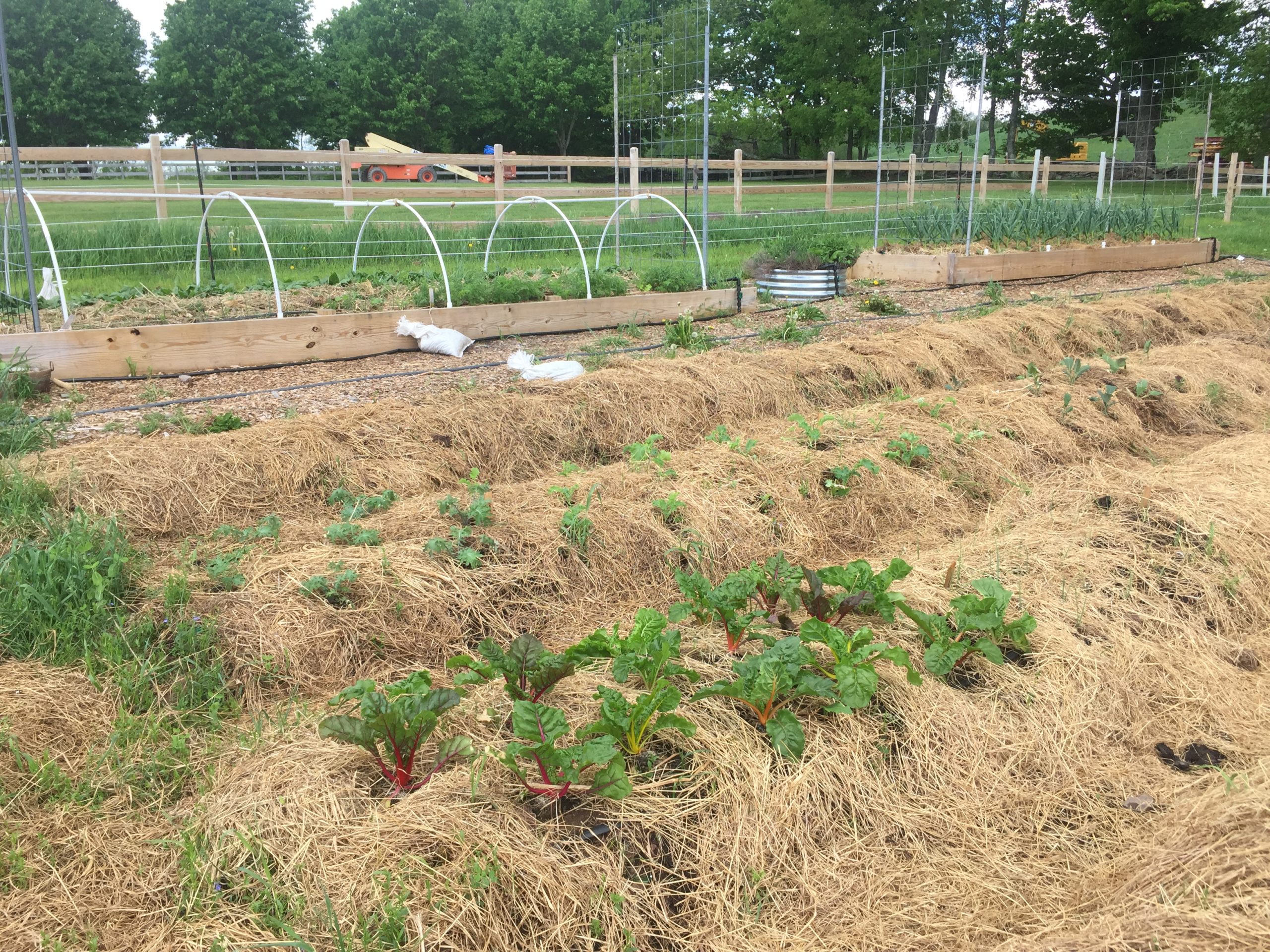While retreats at The Uplands Center are currently on hold due to effects of the coronavirus pandemic, there is still plenty happening on site! Along with a significant expansion of our facility, our team is moving forward with initiatives to add outdoor features, improve landscape health, and grow nourishing food.
Garden expansion
If you visited The Uplands last year, you likely toured our bountiful garden which consisted of six large raised beds. Since then, Sean (Director of Agricultural Operations) developed an indoor seed-starting area and an outdoor cold frame to prepare new seedlings for the season ahead. This year, Sean is expanding the growing zone with additional in-ground beds, doubling the size of the garden. We will continue to use permaculture approaches and biodynamic techniques to promote a diverse and healthy garden ecosystem.
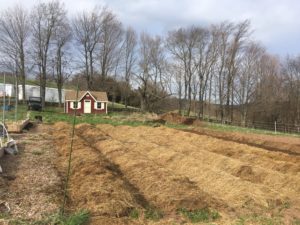
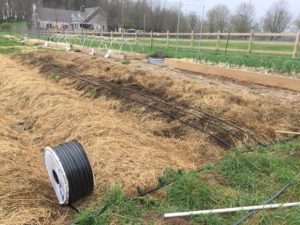
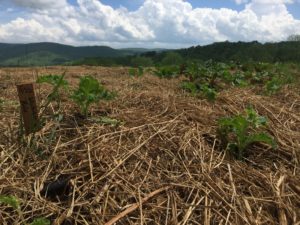
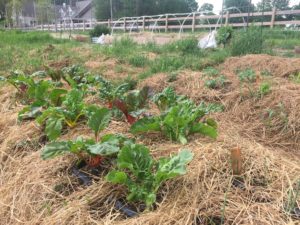
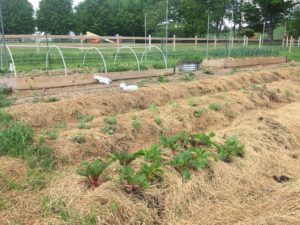
Our orchard is underway, too! So far Sean has planted a variety of apple trees, sea berries, hazelnuts, and blueberries. By planting the trees and bushes on raised berms, we improve water retention in the soil and reduce erosion. The plants are interspersed in a way that enhances the impact of their ecosystem functions and spreads nutrients evenly throughout the soil.
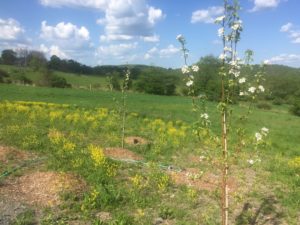
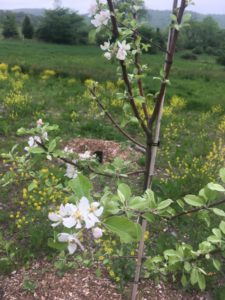
Ordinarily, produce from the garden would be brought to our kitchen staff and used in retreat meals. Given that retreats will likely not resume until 2021, we expect to donate the majority of our produce to local food banks and distribution programs. The Walton Food Pantry provides food weekly to families in order to alleviate hunger and food insecurity. Additionally, the Walton Central School District hosts free lunches for kids during the summer. We look forward to providing fresh, organically-grown fruit and veggies to these local causes.
Native landscaping
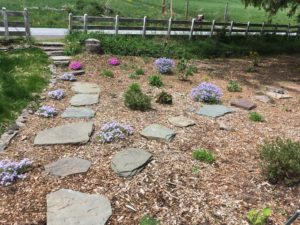
Our on-site directors have been implementing landscaping choices around The Uplands staff housing that are beneficial to wildlife. While many popular landscaping plants are ornate and colorful, they tend to be non-native or cultivated species. This means that they rarely have value to local wildlife. Native plants, on the other hand, have a lot to offer: food sources such as berries to local birds and mammals; nectar for pollinators; and habitat for a variety of animals. Here are a few of our favorites!
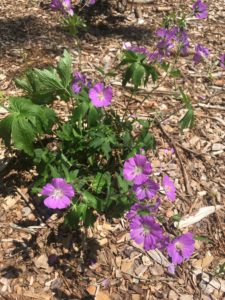
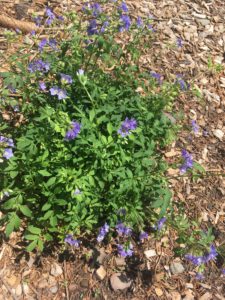
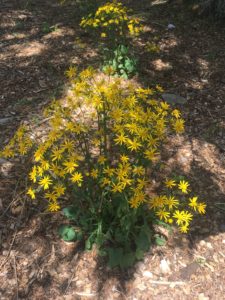
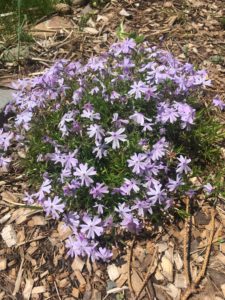
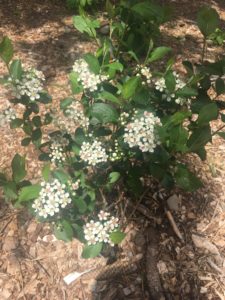
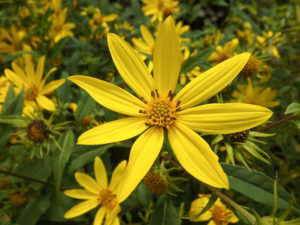
Tree Planting
“The best time to plant a tree was 20 years ago. The next best time is now.” -Chinese Proverb
Our team has recently planted over 75 trees on The Uplands property. Some of these new trees (serviceberry, elderberry, and dogwood) will serve as a windbreak for the garden, which is placed on top of a windy hill. Others have been planted nearby water sources – ponds and creeks – to help stabilize soil and reduce erosion (shagbark hickory and serviceberries).
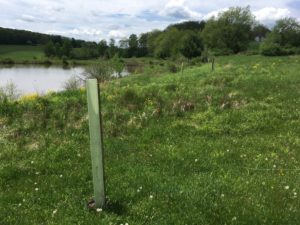
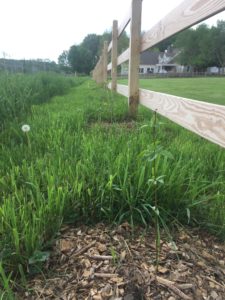
Preparing for Interns
Finally, we are getting ready for our two interns to arrive at the end of June! They will be joining our team to help build nature trails, engage in ecological research, create new environmental programs, and lend a hand in the garden. We look forward to introducing you to them soon!



